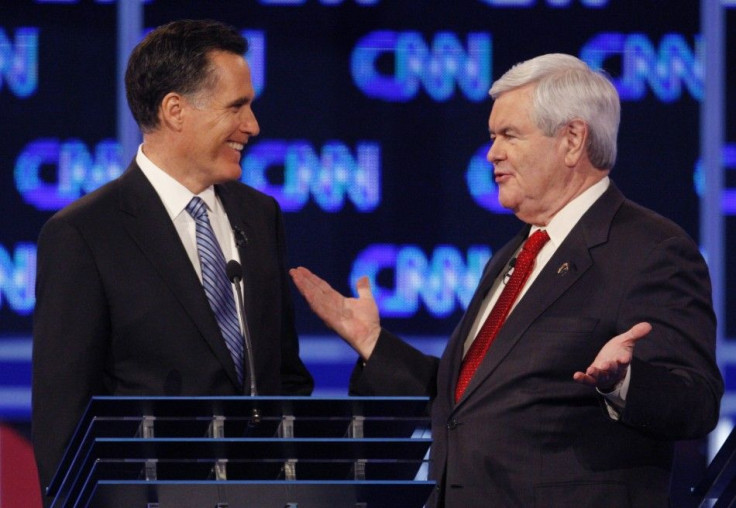Mitt Romney Releases Tax Returns: Paid $6.2M in Taxes but $7M to Church and Charity

Republican presidential candidate Mitt Romney, succumbing to public pressure, released his tax returns for the year 2010 and estimated returns for the year 2011, early on Tuesday, according to a Washington Post report.
His disclosures show he earned $21.7 million in 2010, for which he paid tax at the rate of 13.9 percent - therefore he paid approximately $3 million in taxes. According to the report, his income will stand at $20.9 million in 2011, for which he will pay tax at the estimated rate of 15.4 percent, amounting to $3.2 million.
The reported income figures indicate, as expected, a major chunk of Romney's income comes from capital gains. According to U.S. tax laws, such income is taxed at 15 percent. Romney indicated the same, in a statement made before the South Carolina polls.
However, his effective tax rate, according to his releases, is only 13.9 percent; lower than his own indication and therefore a likely cause of more controversy.
An effective tax rate of 13.9 percent is something his rivals (both Republican and Democrat) will welcome, since it provides them with more ammunition. The likely statement will be that Romney has exploited a loophole in the tax system that allows him to pay far less tax than an average American would have to. Romney is believed to have made a significant portion of his fortune while at the head of Bain Capital. He is still receiving dividend and/or shares in profits on those investments and his net worth is estimated to be between $190 million and $250 million.
The point is that capital gains are usually taxed at lower rates because it is believed those investments will promote job creation. However, the problem is that job creation is not always prioritized and could be used to increase personal wealth.
Importantly, the returns revealed are only for 2010 and 2011 and not for the period he was at Bain Capital - a period that has led to him being accused of making huge profits by reorganizing and destroying ailing companies. His rivals may want to have a closer look at those figures but his campaign has clearly refused to disclose anything more than that which has been revealed.
Meanwhile, Gingrich, who was most insistent that Romney declare his returns, paid tax at the rate of 31.5 percent for 2010 and, along with his wife, Callista, will pay tax at 31 percent ($3.1 million) for 2011.
This indicates Gingrich pays more than the double the amount of tax that Romney paid on his much higher income.
Another interesting factor that emerged from the tax revelations is that he has donated a total of $7 million to Mormon Church and a general charity, starting from 2010, while the total tax he paid to the American government for the same period is just $6.2 million. This is not something his rivals will ignore.
Romney's lower tax rate has evoked criticism, from various quarters, of a U.S. tax system that benefits the rich. Warren Buffett, the billionaire who has been advocating more taxes on the rich, said it is the Congress and the taxing laws in the country that should be blamed, rather than the individuals who make best use of it.
He's not going to pay more than the law requires, and I don't fault him for that in the least. But I do fault a law that allows him and me earning enormous sums to pay overall federal taxes at a rate that's about half what the average person in my office pays, Buffett said, in an interview with Bloomberg Television.
At the end of the day, although there is nothing illegal in Romney's tax rate, he has justified his opponent's criticisms of U.S. tax laws. In fact, he has ended up strengthening President Obama's position on the issue because the Democrats and Obama are critical of tax laws that permit lower interest on capital gains.
© Copyright IBTimes 2024. All rights reserved.












